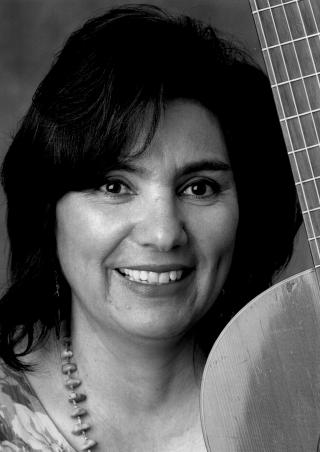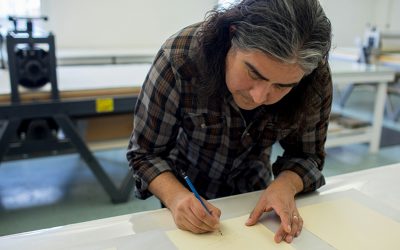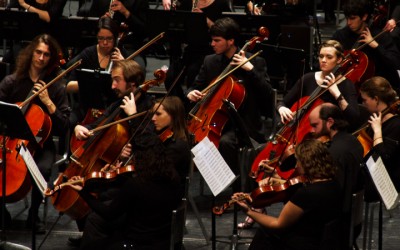Ethnomusicologist Brenda Romero to visit UNM
October 22, 2015 • 2:00-3:30 PM • Keller Hall
Inditas reflect the coming together and coexistence of First Nations and Spanish peoples in the northernmost part of New Spain, and refer to Pueblo, Navajo, Apache, and Comanche, Spanish, and Mexican peoples, but mostly are the products of mestizos (Indo-Hispano, Chicano). The songs are an indirect history of encounter in New Mexico over time. New Mexican ethnomusicologist Dr. Brenda M. Romero will sing and discuss a selection of Inditas and will project song translations for non-Spanish speakers.

Brenda M. Romero is an Associate Professor and Coordinator of Ethnomusicology at the University of Colorado in Boulder. She has worked extensively on the pantomimed Matachines music and dance and other New Mexican folk music genres that reflect both Spanish and Indian origins. Since 1998 she has extended her fieldwork and research on Matachines to Mexico and in January 2007 to Colombia, and has published various related articles. She is co-editor with Olga Nájera-Ramírez and Norma Cantú of Dancing across Borders: Danzas y Bailes Mexicanos (University of Illinois Press, forthcoming). In 2000 she was awarded a Brenda M. Romero Fulbright Research Scholarship to conduct field research on the Matachines music and dance in Mexico. She received the 2005 Society for American Music’s “Sight and Sound” award, a subvention toward the production of her 2008 CD, Canciones de mis patrias: Songs of My Homelands, Early New Mexican Folk Songs. In recognition of her work to promote diversity at CU, she was awarded the President’s 2007 Faculty Award for Diversity.
Pulitzer winning alumnus Raven Chacon to debut new composition, perform
Pulitzer winning alumnus Raven Chacon to debut new composition, perform Tickets available for performances in Santa Fe, Albuquerque By Mary Beth King August 11, 2022 Pulitzer Prize winning Diné composer and sound artist Raven Chacon, who earned his Bachelor of Arts...
The American Prize in Vocal Performance—Women in Art Song and Oratorio, 2022 Winner
The American Prize National Nonprofit Competitions in the Performing Arts, David (Volosin) Katz, founder and chief judge, is honored to announce the winners, runners-up, and honorable mentions of The American Prize in Vocal Performance—women in art song and oratorio,...
UNMSO and UNM Choirs Present: A Concert For Healing
Friday, May 5 at 7:30 pmPopejoy HallUNM Symphony Orchestra directed by Dr. Matthew Forte.UNM Choirs directed by Dr. David Edmonds The UNM Choirs and Symphony Orchestra present a concert that speaks directly to the challenges faced by musicians during the COVID-19...



